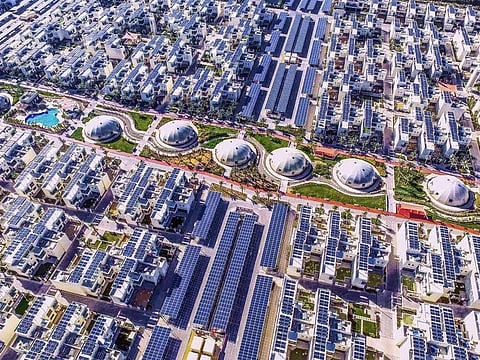UAE residents call for changes in lifestyle to safeguard future generations
What Matters 2024 Report highlights urgency for positive transformation

Dubai: According to the What Matters 2024 report from Human8, a human-centric and insight-driven consultancy, 81% of people in the UAE believe we owe it to future generations to make drastic changes to our way of living.
The report, developed in collaboration with Space Doctors, a strategic cultural and creative specialist team, draws on qualitative conversations from a global insight community across 10 markets and quantitative data from over 13,000 consumers across 17 markets.
This year's edition of the What Matters report provides a cultural framework of positive transformation, highlighting four critical dimensions essential for driving positive change and suggesting eight codes for transformation, offering meaningful paths to adopting a regenerative mindset and identifying powerful, systemic solutions that benefit humanity and the global economy.
More than 4 out of 5 UAE residents surveyed expressed concerns about the state of our planet for future generations, with over 80% agreeing that it's time to transition from "preventing further damage" to "reversing damage already done". Furthermore, 88% feel that brands must take responsibility in helping to safeguard the future of people and the planet, recognizing that they can't make the world a better place on their own.
Gareth Lewis, Co-Managing Director at Space Doctors, emphasized the need for proactive action that goes beyond narratives of protecting the planet, advocating for regeneration, restoration, and reimagining everything.
Despite this awareness, only 20% of UAE residents are confident that they live a sustainable lifestyle, although this percentage is significantly higher than their peers in other EMEA markets such as France (7%), Germany (10%), South Africa (16%), and the UK (7%).
Tom De Ruyck, Partner & Chief Growth Officer at Human8, noted that UAE residents recognize the importance of moving away from a consumption-driven lifestyle to safeguard and restore the planet, aligning with the UAE Consensus agreement signed by 198 nations.
The report also highlights the importance of inclusivity and collaboration in climate-positive initiatives, echoing decisions taken at COP28. Nearly 6 in every 10 UAE residents believe it's time to flip the script on diversity and inclusion, emphasizing the need to create their own way of doing things rather than adhering to dominant norms and labels.
Moreover, UAE residents expressed a willingness to adopt more sustainable lifestyles if such options were more readily available and if the positive impacts of these choices were made clear, placing the responsibility on brands to facilitate this transition.
In conclusion, sustainability remains a top priority for UAE residents, with 45% believing it's not too late to reverse the damage done to global ecosystems. Over 80% of those surveyed also believe that a single, focused action can release a wave of change, demonstrating their willingness to learn and take concrete actions to create a better future for people and the planet.
Other key findings from the report for the UAE include:
Consumers look to brands for inspiration and vision to drive positive change, with 83% believing it requires collaboration between people, organizations, and brands.
Factors such as availability (45%), quality (42%), and the clear impact of sustainable options (41%) would help consumers adopt a more sustainable lifestyle.
Brands need to be more transparent about their sustainability efforts, with nine out of 10 people saying brands should provide more information, and 60% believing that brands that don't communicate about sustainability aren't sustainable.
To access the full 2024 What Matters report, which includes worldwide data and examples, visit www.wearehuman8.com/reports/what-matters-report-2024/.
Sign up for the Daily Briefing
Get the latest news and updates straight to your inbox



